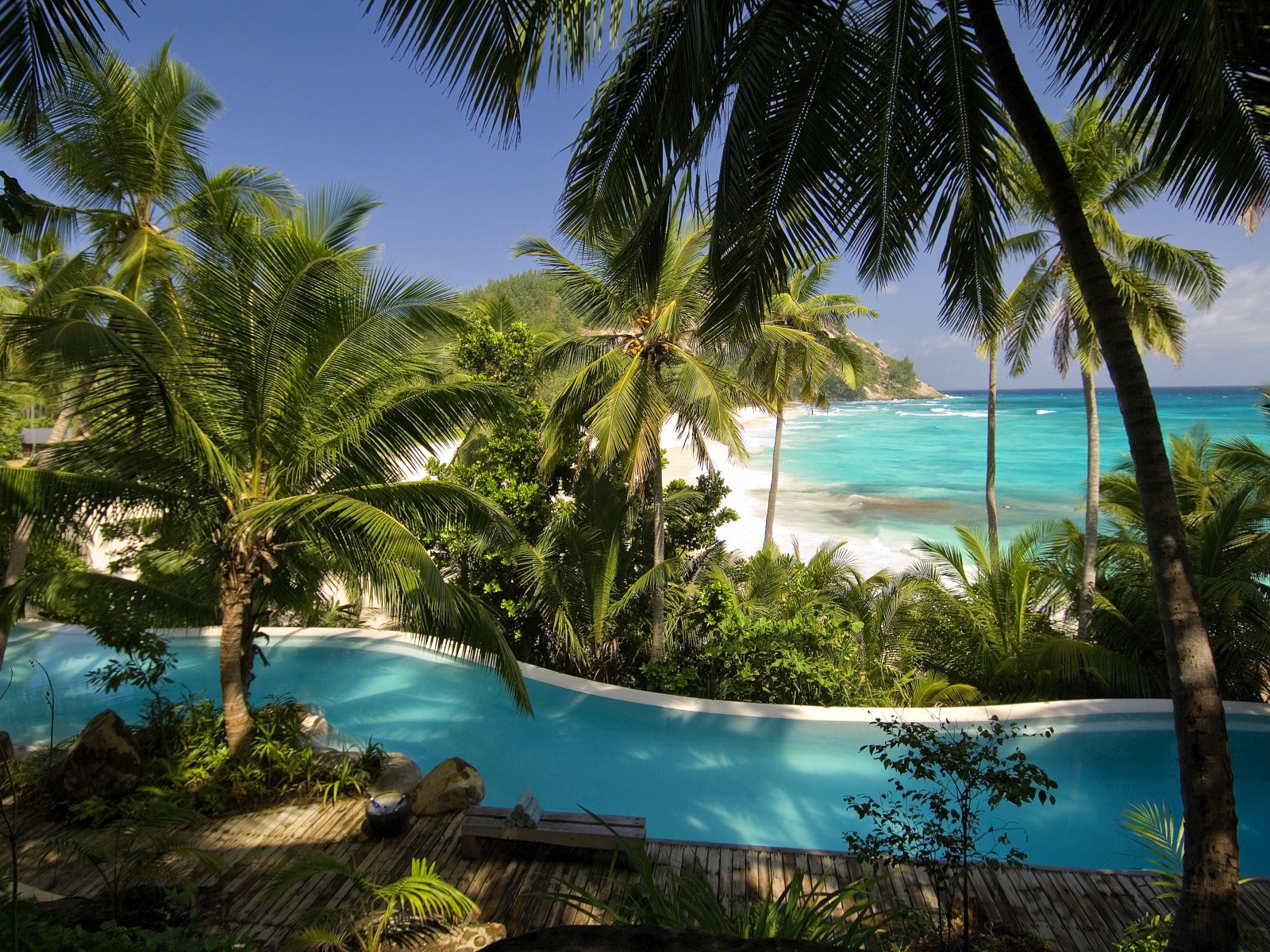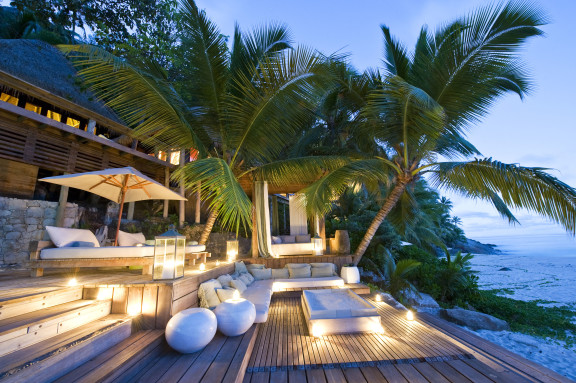
North Island Blog Post
Playing out one’s Robinson Crusoe fantasy on the five-star, exclusive eco-island of North Island in the Seychelles can mean different things to different people. If your idea of relaxation is unleashing ‘the explorer within’ with frenetic bouts of bundu-bashing, reef diving, snorkeling, jungle walks and tree climbing – you’re in the right place. While for those of us, for whom the mere whiff of tropical air brings on instant lethargy – fear not, you are too!
1,000 miles from the nearest continental landmass, North Island is the epitome of wild (and luxurious) abandonment with 11 perfectly appointed and utterly private villas. Each villa is equipt with a bathroom big enough to live in and a kitchen stocked with an impeccable selection of champagne, organic plantain chips, and homemade ice-cream. Not to mention a private pool, gazebo, lounge and lawn leading to the beach, where a come-hither hammock stretches elegantly between palm trees. But a visit to North Island is also a sober reminder of man’s blundering ability to decimate his environment for the story of North Island is an intriguing tale of rescue, with commercial tourism the unlikely hero.
First documented in the 1600s by European traders who went ashore in search of fresh water and the giant tortoises that remain to this day, the island was known as the ‘vegetable garden of the Seychelles’ in the mid-90s, thanks to fertile soils and a fresh water aquifer on the island plateau. In the 1950s and 60s, it became a commercial copra oil plantation and was thereafter uninhabited for thirty years. During this time a rat population fit for the Pied Piper rain riot, as did the palm trees that today number around 50 000.
It was after a biodiversity programme undertaken by the Seychelles government that deemed the island suitable for rehabilitation, that well-known conservationist Peter Hitchens suggested a Noah’s Ark programme to Wilderness Safaris. And so, Wilderness and a group of investors bought the island in 1998 with the commitment to create a commercial venture that would see the reintroduction of endemic and endangered birds. Classified as an Important Bird Area by Birdlife International, the Seychelles granitic islands are home to some of the world’s most endangered birds such as the magpie robin and the Seychelles warbler. Protecting these species is what drove the rehabilitation programme and twenty years later the environment has proven to be incredibly forgiving.
North Island’s commitment to the continual clearing of alien plant species and replacing them with 120,000 native seedlings grown in the island’s nursery has resulted in the return and successful reintroduction of many indigenous wildlife species including the Seychelles Sunbird, the endangered Seychelles White-Eye, as well as both green and hawksbill turtles. Successful rat removal has allowed ground-nesting seabirds to thrive, while fishing protocols for guests and local fishermen ensure sustainable management of ocean resources. A team of environmentalists lives on site, monitoring all aspects of the island’s ecology, from tide levels and beach movement to wildlife census and coral reef health – data that contributes to greater global understanding of migration patterns, sea temperatures, and the impact of climate change. So much so, last year North island was awarded the National Geographic World Legacy Award for Conserving The Natural World through its Noah’s Ark initiative.

North Island remains the ultimate five-star eco-sanctuary dedicated to barefoot luxury, and to this end, it has scooped a flurry of international awards over the years, due in no small part to the integrity of the island’s environmental program and a monumental design language. And while for many a stay on North Island is about as rare as the island’s endemic bird population, for those who have the privilege of visiting, a stay here honors the very things we tend to take for granted. If you consider that islands are microcosms of their continental counterparts – then North Island’s success is an undoubted success for us all.
If you would like more information on North Island, or if you would like us to include a stay here in your luxury African safari itinerary, email welcome@roarafrica.com



